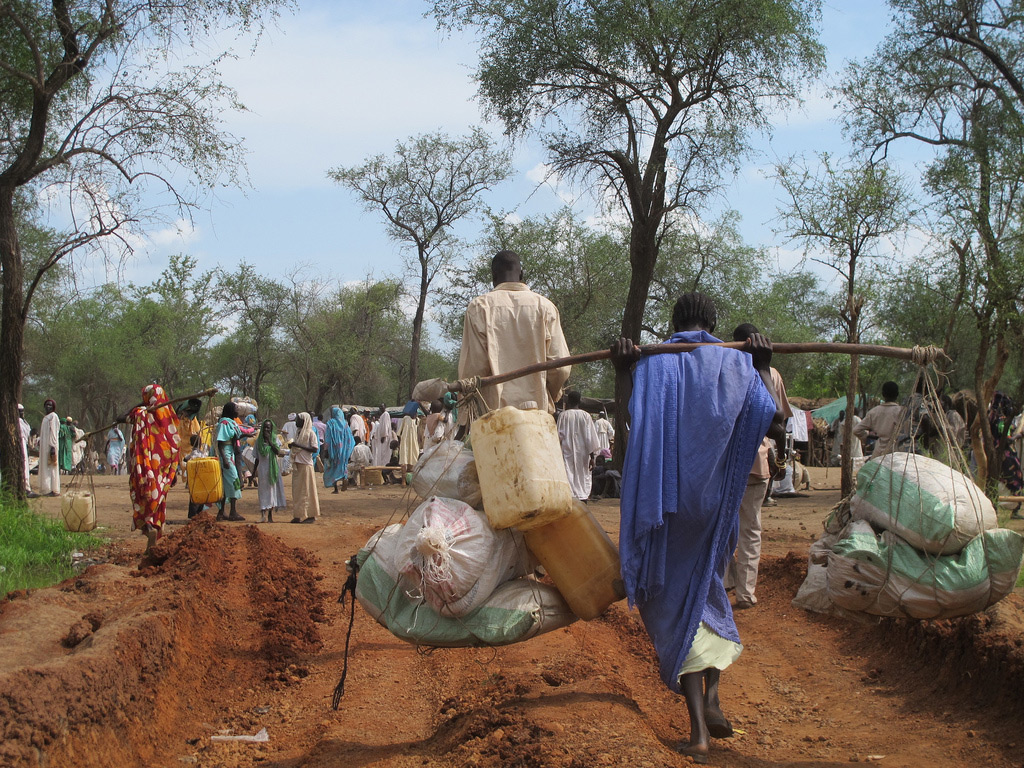
In a new policy brief released today, the Enough Project’s Jennifer Christian calls for an increased international response to the humanitarian crisis in Sudan, particularly in the delivery of aid throughout the states of South Kordofan and Blue Nile. The report, “Shifting the Burden: The Responsibility to Protect Doctrine and the Humanitarian Crisis in Sudan,” cites the responsibility to protect doctrine, or R2P, as the guiding principle by which the international community must operate.
As the opposition coalition group Sudan Revolutionary Front, or SRF, and the Sudanese government engage in ongoing conflict, civilian populations in South Kordofan and Blue Nile are paying the price. The estimated 700,000 civilians affected or displaced by the conflict have experienced bombings, massive food shortages, and destruction of property, all while the Sudanese government continues to completely restrict international humanitarian aid to the two states. Despite mounting international pressure, the Sudanese government has stalled all attempts to reinstate aid, including the Tripartite Proposal already accepted by the Sudan People’s Liberation Movement-North, or SPLM-N, an armed component of the SRF and the rebel group operating in the region.
The brief notes that the responsibility to protect doctrine calls on the international community to protect civilians in cases of genocide, war crimes, or crimes against humanity. In cases where a state is unable or unwilling to protect its citizens, “the international community has an obligation to take collective action.”
The systematic and widespread attacks in South Kordofan and Blue Nile are evidence not only that the government of Sudan is failing to protect its citizens, but is responsible for perpetuating the humanitarian crisis. “If the responsibility to protect doctrine is to have any meaning, the international community has to step up in a situation like this and ensure the delivery of humanitarian assistance throughout Blue Nile and South Kordofan by whatever means possible,” said Enough Project Executive Director John Bradshaw.
The report outlines recommendations for how the international community moving forward can shift to a more active role in alleviating the crisis in South Kordofan and Blue Nile. According to R2P, the steps towards fully assuming international responsibility must occur in a substantive progression.
First, the international community must employ peaceful, diplomatic strategies, including diplomacy and fact-finding missions. Should these peaceful means prove ineffective, as they have in Sudan, with a mandate from the U.N. Security Council, the international community may take collective measures under Chapter VII, specifically Articles 41 and 42, of the U.N. Charter. These articles provide for the imposition of sanctions against a state or individual regime members as well as the use of force to establish safe zones, impose no-fly zones, or deploy a protection or deterrence force, among other multilateral actions.
“Under the responsibility to protect doctrine, the international community now has an obligation to ensure international humanitarian aid reaches civilians throughout South Kordofan and Blue Nile by whatever means necessary,” said author Jennifer Christian. “Discussions should begin immediately over a comprehensive plan to deliver international, cross-border humanitarian assistance throughout the two states without the permission of the government of Sudan."
The report urges the international community to initiate discussion within the U.N. and/or African Union to create a comprehensive plan to deliver international aid in efforts to protect affected civilians in the region.
Read the full brief: “Shifting the Burden: The Responsibility to Protect Doctrine and the Humanitarian Crisis in Sudan.”
Photo: Refugees fleeing violence in Blue Nile state, Sudan arrive in Batil refugee camp, South Sudan. (Amanda Hsiao/Enough Project)

